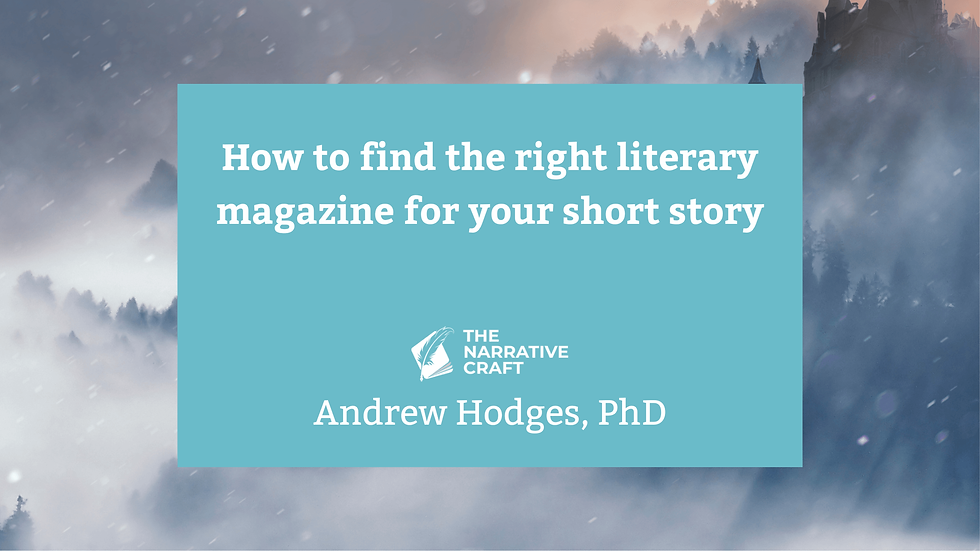What is the difference between a novel and a short story?
- Andrew Hodges

- Jul 24, 2023
- 3 min read
Updated: Jul 2

Let's start with the obvious: novels are longer than short stories.
Short stories are typically under 10,000 words and over 1,000 words. Anything shorter is usually flash fiction, which is written and edited quite differently.
Novels are typically over at least 40,000 words, and sometimes the cut-off point is a bit higher.
Anything shorter is either a novella or a novelette.
All this depends on audience, too. Novels written for children or teenagers are often shorter than novels written for adults.
But how does the length and function of novels and short stories shape the kinds of stories that are told?
Short stories offer a freer format
Short stories are a much freer format than novels. Most novels take the reader on a journey; they have a beginning, middle, and end, and often an inciting incident.
Short stories, meanwhile, may explore a theme or situation in a looser way. They might have a beginning, middle, and end – much like a novel. Or they might just explore an idea or a feeling.
While novels need some kind of resolution – often a satisfying one rather than, say, a cliffhanger, short stories don't have the space to build up lots of different threads and characters in the same way, so they may just have a twist near the end. This twist will make you look differently at the events described before it.
Short stories can be highly experimental and make a point about, or play with, one aspect of storytelling. This is perhaps why the short story landscape is much more fluid and transient than the novel landscape. Literary magazines pop up and then disappear like mushrooms, whereas novels endure for longer.
For a fresh perspective on current topics in publishing, check out my podcast:
The difference between a novel and short story: Money matters
Money is a key factor here too. A novel usually involves months or even years of work, and the costs involved in publishing a novel are significant. So publishers want to take a gamble on a novel being a viable commercial proposition, which reduces the space for risk-taking and highly experimental formats. Of course, authors can self-publish an experimental novel, but genre fiction tends to get the most sales in the self-publishing space.
The stakes are lower with short stories.
And that’s why, for example, modes of telling the story that may be irritating across a full-length novel, such as the second-person, can be incredibly effective in short stories.
Short stories are also a great way to hone your writing craft. There’s value in going through the process of drafting, revising, and submitting a short story several times before even considering querying a novel with publishers.
But equally, the short story format does not suit all writers, so don’t think you have to go through these steps. At the end of the day, if you enjoy writing short stories, they are excellent for practice, but never feel you have to spend time doing something you don't enjoy.
If you want to learn more about the different kinds of short story, I highly recommend Comma Press’s resources on short stories. They also offer courses on this topic.
Do you have any thoughts on how short stories work differently to novels? Let me know in the comments below.
And if you want some feedback on your own short story, check out my fast feedback service.
You can ask me to focus on something specific (e.g., characterization, POV), or you can ask me to focus on the main points that need improving.
I have one fast feedback slot available per week, and it costs £50.
Choose between:
detailed MS Word comments on up to 2500 words
or: brief summary feedback on reading up to 5000 words (one to two pages)
To book, send the story to my email (info@thenarrativecraft.com) and make the payment below.




Comments